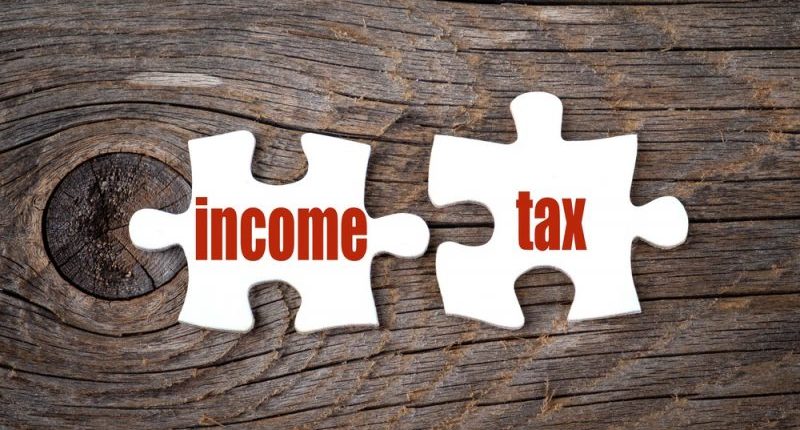The last due date for filing income tax returns for the FY 2020-21 has been extended to 30 September 2021. Although there are almost two months left for the deadline to end, it is not advisable to wait until the last minute and hassle your ITR filing.
Here are the checkpoints to keep in mind before filing ITR:
1. The income tax department has launched a new utility with JSON technology for e-filing the income tax return for FY21. However, only three forms, namely ITR-1, ITR-2 and ITR-4, have been released by the IT department. Other income tax return forms will be available shortly for the taxpayers. The new JSON utilities are embedded with the pre-fill data functionality wherein details like salary income, interest income, capital gains, dividend income, personal information and other relevant information from the tax credit statement Form 26AS.
2. The Finance Act 2020 introduced a new tax regime applicable for the computation of taxable income starting from 1 April 2020. Hence, the taxpayers will have to choose between the old and the new regime while filing the tax return for FY 2020-21. Individuals with salary income will have an option to change the regime to an alternative regime from the one considered for TDS deduction by the employer. However, it is to be noted that the individuals will have to mandatorily furnish a declaration under Form 10IE before switching between old and new regimes.
3. As this is the first time the government has launched pre-filled returns, the taxpayer should not wholly rely on the data populated in the pre-filled returns. Hence, the taxpayers should collate all the documents like Form 16, tax credit statement 26AS, bank statement for FY 2020-21, investment proofs, capital gain account statement, FD interest statement, etc. The taxpayer should reconcile all the sources of income with the data in the pre-filled ITRs. The taxpayer will be able to edit some sources of income in the pre-filled data in case of a mismatch between the document proof and the pre-filled figure. However, the taxpayer should double-check before e-filing to avoid any queries/notices from the department citing the mismatch. The taxpayer should retain all the relevant document proof for future reference and seamless processing of the ITR.
4. The taxpayer should calculate the tax liability and pay the tax dues within the due dates before filing the return to avoid any interest on delayed tax payments.
Also, the due date to file the income tax return for FY 2020-21, i.e. AY 2021-22, has been extended as follows:
- The due date for filing ITRs by taxpayers (other than an audit) has been extended from 31 July 21 to 30 September 21.
- The due date to furnish the audit report under the Income Tax Act is extended to 31 October 2021, and the audit report for transfer pricing cases is extended to 30 November 2021.
- The ITR filing for tax audit cases is extended to 30 November 2021, and for Transfer Pricing cases, it is extended to 31 December.
- The due date to file a belated or revised return has also been extended by one month to 31 January 2022.
5. The taxpayer should file his return of income using the appropriate ITR form based on the category and source of income. Using a wrong tax return form might lead to a defective return notice from the tax department. For example, ITR-1 applies only to individuals and HUF residents and has income from salaries, not more than one house property and income from other sources. This form cannot be used where the individual taxpayer has income from capital gains. You may click here to know which ITR form to be filed for more clarity.
6. If a taxpayer fails to file the return within the extended deadline, he can file a belated return before 31 January 2022. (recently extended from 31 December 2021). However, filing of return after the due date, even before the belated return due date, will attract a late fee of Rs 5,000 along with interest on tax liability outstanding.
7. CBDT has also clarified that the due date for filing the tax return shall not absolve the taxpayer from paying tax before the original return filing date. Hence, any delay in the payment of tax will attract additional interest. However, the CBDT has provided relief from levy of interest if self-assessment tax payable by a taxpayer does not exceed Rs 1 lakh. This relief is also available for resident senior citizens not carrying on business or profession.
We would also like to mention here that the income tax department launched a new e-filing portal to simplify and speed up income tax return processing. The department is working with the vendor to resolve the glitches faced at the initial launch. Further, the taxpayers expect the new portal to simplify their tax lives after the glitches get addressed.
For any clarifications/feedback on the topic, please contact the writer at jyoti.arora@cleartax.in

I am a Chartered Accountant by profession with 4+ years of experience in the finance domain. I consider myself as someone who yearns to explore the world through travelling & Reading. I believe, the knowledge & wisdom that reading gives has helped me shape my perspective towards life, career and relationships. I enjoy meeting new people & learning about their lives & backgrounds. My mantra is to find inspiration from everyday life & thrive to be better each day.





